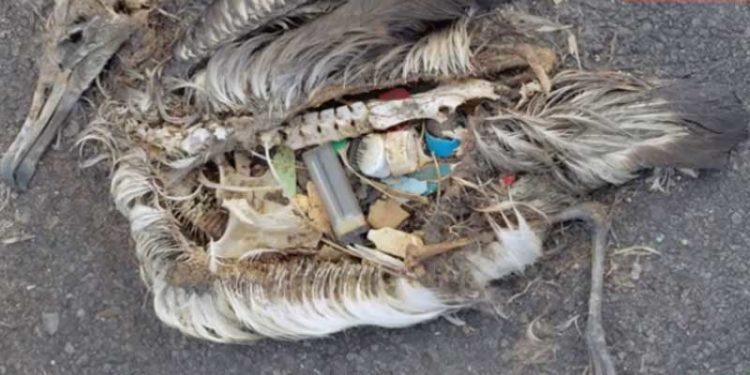Several hundred thousand pieces micro-plastic can be hidden in cosmetic products as lotions, body scrub and toothpaste. Denmark’s Environment and Food Minister sees no reason to use micro-plastic in cosmetics when there are alternatives, and now calls on the EU for a ban.
Esben Lunde Larsen is calling on the European Commission to prohibit the use of micro-plastics in cosmetic products that can find their way into the marine environment and into the food chain as plastics accumulate in both wildlife and humans.
‘Micro-plastics do not belong in the natural environment, and we have to limit the spread of micro-plastics so these do not end up in the aquatic environment and the food chain. There is no need to use micro-plastics in cosmetics – especially when there are alternatives, and at the same time are doubts about the environmental effects of these plastic fragments. Therefore I have been in contact with the European Commission calling for a ban on the use of micro-plastics in cosmetic products,’ he said.
The USA has recently banned the use of micro-plastic in cosmetics such as toothpaste and creams. The ban takes effect in 2017. In Denmark and the rest of the EU the cosmetic industry will phase out the use of micro-plastics on a voluntarily basis, with no deadline set for the eventual phase-out.
99% of the microporous plastic discharged into the natural environment originate from other sources than from cosmetics, according to a Danish report. The vast majority come for example from wear on car tyres and the soles of shoes, laundry and residues from paints, much of it transported with the waste water to end up in rivers and eventually in the sea.
The Environment and Food Ministry currently has two projects underway to examine the effects of and ways to limit micro-plastics in wastewater.
‘We are exploring how we can limit the spread of micro-plastics, for example by cleaning our wastewater. But micro-plastic is not a problem that Denmark lone can solve alone. Therefore, we have studies underway – both nationally and under the auspices of the EU to help us better understand the problem,’ said Esben Lunde Larsen.









